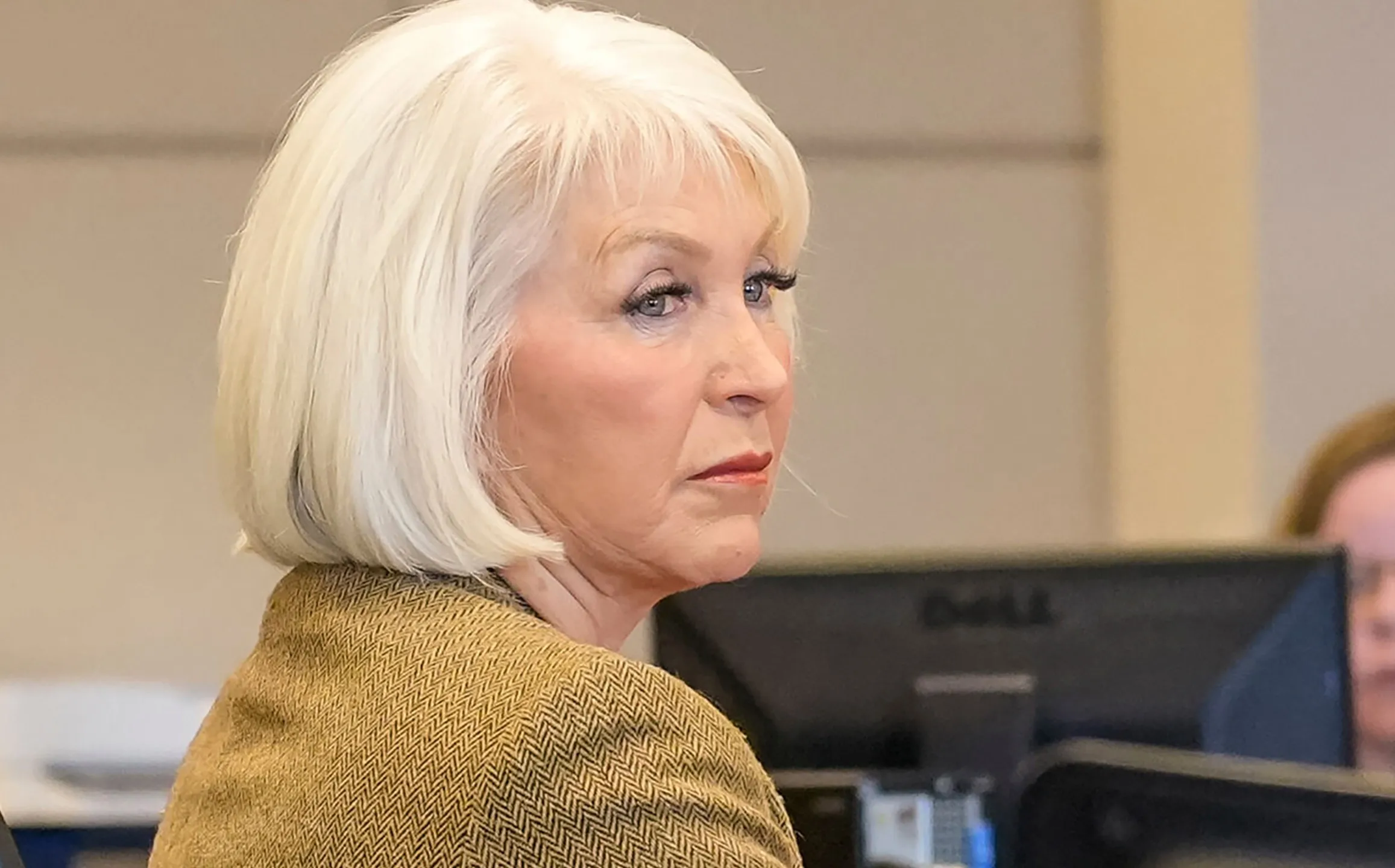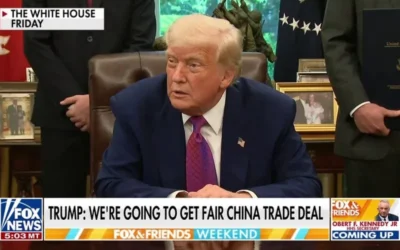In the Spotlight: Tina Peters and the Politics of Election Integrity
The name Tina Peters has recently echoed through political arenas and social media channels, bringing intense discussions about election integrity, legal proceedings, and the complexities surrounding political prisoners. Most notably, former President Donald Trump took to social media to advocate for Peters’ release from prison, referring to her as a ‘political prisoner.’ This declaration raised eyebrows, especially in light of the responses from key Colorado officials such as Attorney General Phil Weiser and Secretary of State Jena Griswold, who categorically rejected Trump’s characterization.
Who is Tina Peters?
Tina Peters was the Mesa County Clerk and Recorder in Colorado. She garnered national attention following the 2020 presidential election, primarily due to her involvement in a controversial alleged election security breach. Peters and her supporters claim that she was investigating election fraud, and what followed was a chain of legal challenges and accusations of misconduct. In early 2021, Peters was accused of allowing unauthorized access to voting machine servers which led to further legal scrutiny. Following these incidents, she endured a contentious political and legal journey, ultimately resulting in her imprisonment.
The Context Behind Trump’s Advocacy
In his recent social media post, Trump urged the Department of Justice to take action to free Peters from her prison sentence. His assertion was accompanied by a strong rhetoric claiming she is being punished for exposing supposed fraud in the election processes. Trump’s ongoing narrative around election integrity continues to resonate among his supporters, framing Peters as a martyr for the cause.
The notion of using the term ‘political prisoner’ carries substantial weight, often contextualizing an individual’s imprisonment as being a product of political persecution rather than legitimate legal actions. This tactic has precedence in Trump’s discourse, resonating with Americans who feel disenfranchised by the political and judicial systems.
Colorado Officials Respond
Phil Weiser, the Colorado Attorney General, and Jena Griswold, the Secretary of State, quickly responded to Trump’s claims. They emphatically rejected the idea that Peters is a ‘political prisoner.’ Weiser stated that while individuals may attempt to exploit legal systems for political gain, the legal actions against Peters are warranted and based on her alleged violations of election law. Griswold added that the integrity of the election process must be upheld and reiterated that Peters’ actions threatened this fundamental democratic pillar.
The tensions between Trump’s narrative and the state officials’ positions highlight a significant divide in perceptions surrounding election processes in America today. While many see Peters’ case as emblematic of a fight for transparency and accountability, her detractors view it as an attempt to undermine trust in electoral integrity.
The Legal Backdrop: What is Habeas Corpus?
The legal concept of habeas corpus, meaning ‘you shall have the body’ in Latin, serves as a legal remedy to individuals who believe they are unlawfully detained. The process enables a prisoner to challenge the legality of their detention. Trump’s invocation of habeas corpus in relation to Peters’ situation indicates a strategic approach to influence her release through legal channels.
Historically, habeas corpus has been a critical safeguard against unlawful imprisonment, tracing back to the Magna Carta in 1215. In contemporary contexts, it’s often invoked in cases involving allegations of wrongful detention, providing a framework for defendants to mount defenses against their stay in custody.
The Broader Implications of Trump’s Intervention
Trump’s call for Peters’ release also opens a Pandora’s box of discussions regarding the extent to which political figures can sway legal matters. As Trump’s influence remains significant among conservative voters, his comments could potentially lead to increased campaigns to aid Peters’ escape from her current legal plight.
On the flip side, the more resistance and contextual denunciation Peters receives from state officials like Weiser and Griswold can galvanize her support base, enhancing her standing as a symbol of resistance against perceived governmental overreach.
A notable aspect of this discourse includes the role of social media in shaping public perception. Trump’s powerful presence on platforms like Truth Social stimulates immediate mobilization among his supporters, facilitating a myriad of campaigns aimed at advocating for Peters.
Public Reaction and Support for Peters
Since Trump’s announcement, there has been an influx of public sentiment both supporting and opposing Peters. Her supporters argue that she is merely a whistleblower challenging an unjust system, while critics assert that her actions compromised the integrity of elections. Various political groups have rallied around Peters, organizing protests and social media campaigns calling for her release, framing her as a victim of political repression.
The Need for a Nuanced Discussion
As the U.S. navigates complex issues of election integrity, political influences, and judicial independence, the need for nuanced discussions becomes all the more crucial. Peters’ case illuminates the precarious balance between safeguarding democratic values and ensuring that individuals adhere to laws designed to uphold electoral integrity.
Ultimately, as Trump continues to advocate for her on social media, and as Colorado officials reinforce their positions, the ongoing legal and political saga surrounding Tina Peters will likely persist as a flashpoint for debates on election laws, political narratives, and the interpretation of justice in America.
Conclusion: Where Do We Go From Here?
The future is uncertain not only for Peters but also for the broader implications this case may have on U.S. politics. The tensions between narratives of election fraud and the commitment to uphold the rule of law are palpable. As advocacy for Peters’ release gains momentum, those in positions of authority must navigate the delicate balance of upholding justice while managing political discourse in a polarized environment.
This case stands as a testament to the evolving relationship between legal matters, personal liberties, and political ideologies—critical components that continue to shape the contours of democratic life in the United States.







